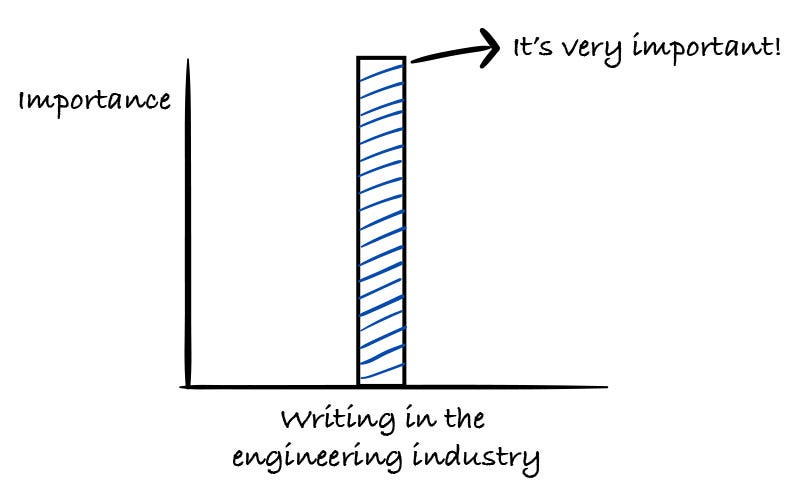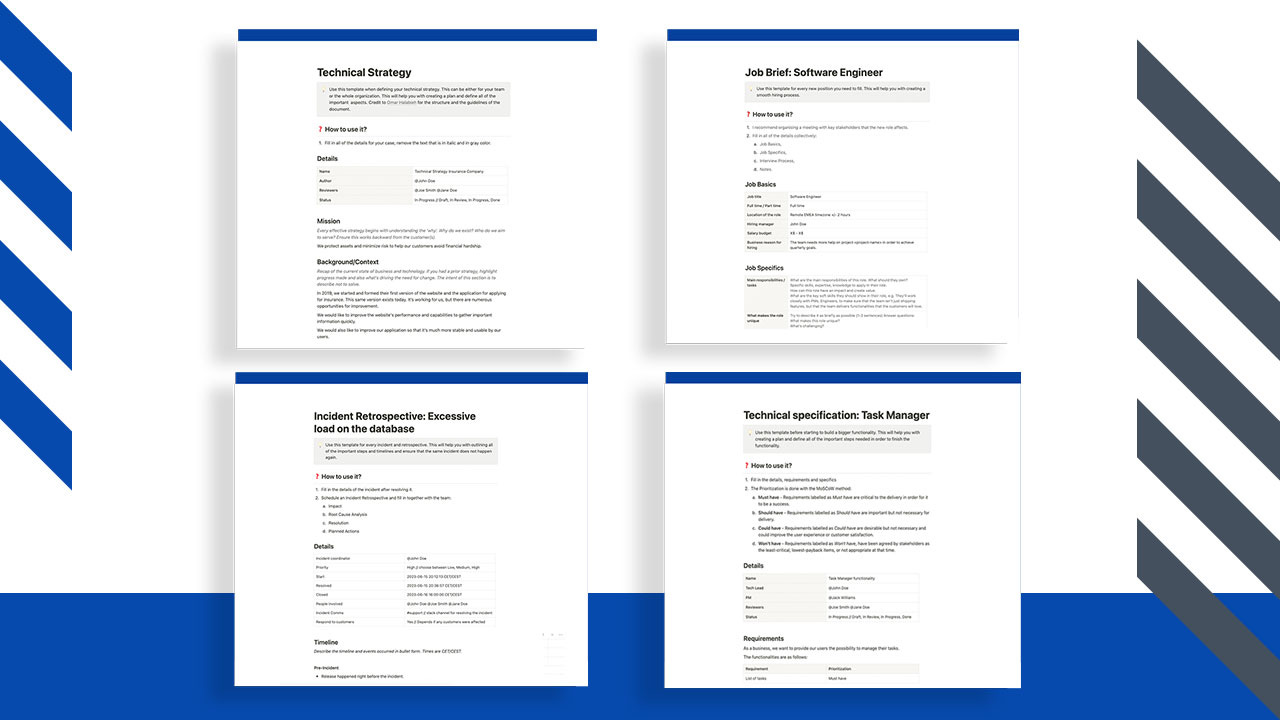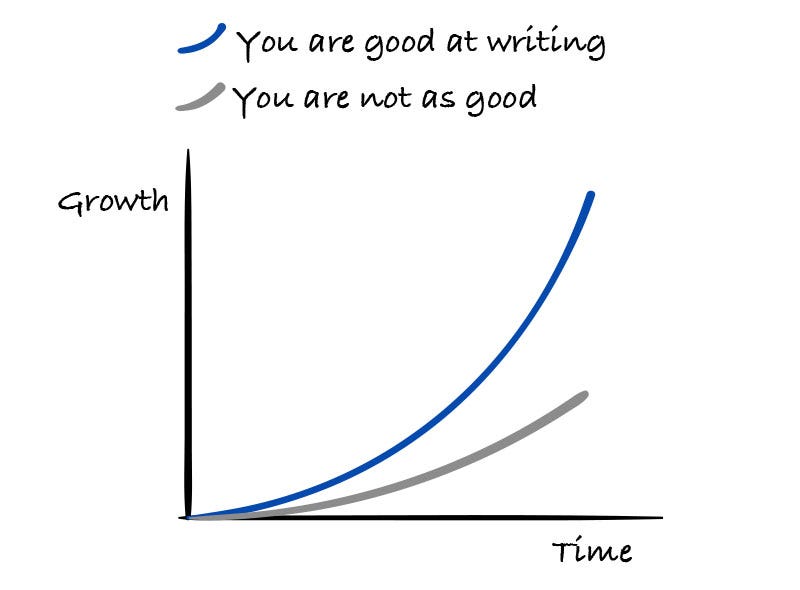Importance of writing in the engineering industry
Spoiler: It's very important. Guest post from Gregor Ojstersek Author of Engineering Leadership Newsletter.
Hi, this is Ankur from ByteSizedBets with another monthly exclusive edition of the newsletter. Each month, I write about software engineering, startups, developer tools, writing, career growth and small bets.
Thank you for your readership, we hit 5,000+ readers last week 🙏 🎉
Last month, I went to my home (India) and decided to take a full offline break. It was incredibly rejuvenating, and it feels great to be back. This is why I didn't send out any newsletters in January. But now, you can look forward to receiving a newsletter every month.
Today's post features a guest contribution by Gregor Ojstersek
Let's get started!
Intro
Being able to write well is becoming more and more important in the engineering industry. The reason is that the majority of our communication goes through writing.
We are aligning via Slack, we are doing code reviews, we are writing tech specs and we also writing code. Let’s get into more detail about it next.
Why is writing so important in the engineering industry?
Imagine being a part of a bigger organization and all the members communicate verbally and not in a written form. What would happen? There would be a whole lot of misunderstandings and misalignments. It would be close to impossible to operate successfully this way.
The reason is that verbal communication doesn’t scale well and it’s always needed to be repeated. If you express your thoughts or a certain decision in a written form, you write it once and you don’t need to repeat it. You just need to make sure that people know where to find it and they understand it.
Plus alignment is very important in the engineering industry. For example, If two teams are not aligned and they are both building something totally different than expected. This can make or break the business.
Writing ensures alignment between people, teams and also with the business
The bigger the organization, the bigger the need for written documents. My recommendation for written documents differs if I am advising a startup or a bigger organization.
The most applicable to the majority are mid-sized companies of around 50-250 employees. Let’s go through my recommendation for that size. This is what I suggest (priority is added with the MoSCoW method):
1. Product specifications (Must have)
Without good specifications of the product, nobody will understand it anymore.
2. Technical specifications (Should have)
Important to align on the technical implementation
3. Coding style guides (Must have)
Style guides are needed to ensure consistency.
4. Coding guidelines (Must have)
It’s really important that all of the engineers are aligned on what to do and what not to do.
5. Technical strategy (Must have)
Important to understand the vision and define short and long-term goals.
6. Documentation of various processes (Incident Management, Job Brief, Onboarding, etc) (Should have)
Important to document every process that takes place. That’s how we can align on it and adjust when needed.
If you would like to get the templates for some of the documents mentioned above you can find them here (paid templates):
1. Notion Template: Technical Specification
Use this template to define a great technical plan for your next functionality. Great planning, often leads to great success.
2. Notion Template: Incident Retrospective
Use this template to note everything down when the incident occurs. That’s the best way to have a complete overview of the problem and how to resolve it.
3. Notion Template: Job Brief
Use this template for every new position you need to fill. This will help you with creating a smooth hiring process.
4. Notion Template: Technical Strategy
Use this template when defining your technical strategy. This can be either for your team or the whole organization.
Or you can get all of them for FREE + many more by becoming a paid subscriber to the Engineering Leadership newsletter.
Good writing skills are crucial for engineering leaders
The more you grow in your career, the bigger the need for effective writing is. For engineering leaders, it’s crucial to be good at it.
They are setting an example for others on how to write documents effectively.
It’s really important that the documents not only have good substance, but they are easily understandable. You can have the best process in the world, but if the team doesn’t understand what is expected from them, the process will not work.
I wish to especially point out how crucial effective writing is for developing a great tech strategy for the organization. You need to align not only with your team but also with the whole organization. You can read more about how to do that here: How to develop a great tech strategy (paid article).
Being good at writing will help you to progress in your career much faster
Now that we know and understand why writing is so important in our industry, we can conclude that if you are good at writing, you will be progressing in your career much faster.
There are a number of different ways how you can improve your writing skills and the best way to do it is to just practice.
If you are not writing online yet, I would highly suggest to do so. A good start would be to start posting on LinkedIn and/or Twitter (X). The frequency at the beginning doesn’t matter that much, as long as you are consistent. Once you build the consistency you can increase the frequency as well.
The next step is to start sharing your knowledge in a longer form as well. Start writing a blog or a newsletter. You are helping others and at the same time, you are cementing your knowledge on particular topics + you are getting better at writing!
Last words
Writing is the core of great engineering organizations and it’s only going to become more and more important. Are you writing online? I would love to hear from you if that’s the case. If you are not already, let me know what’s stopping you!
Don't let your story remain untold. Visit my blog, embrace the art of writing, and start shaping your ideas into the stories only you can tell. The next chapter awaits.
I encourage you to explore these blog posts to kickstart your writing journey.









I've learned Software Engineering from scratch by writing online. Cannot recommend it more!
Thank you for sharing!